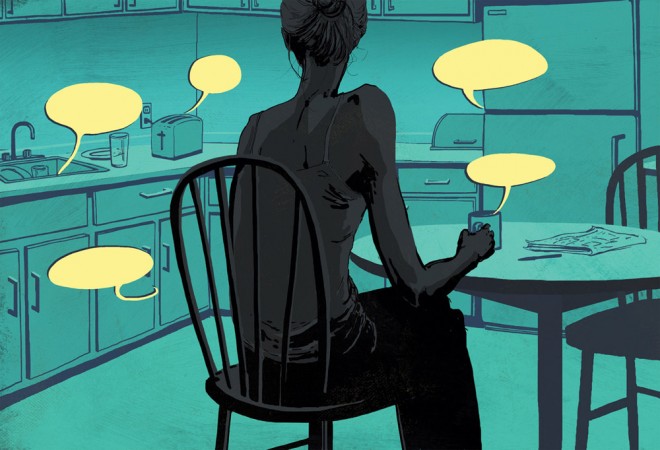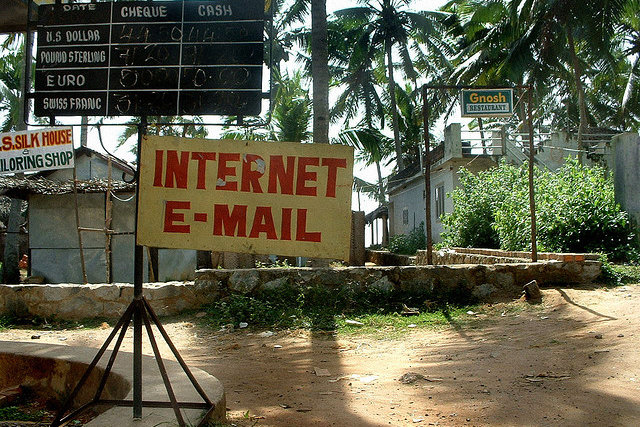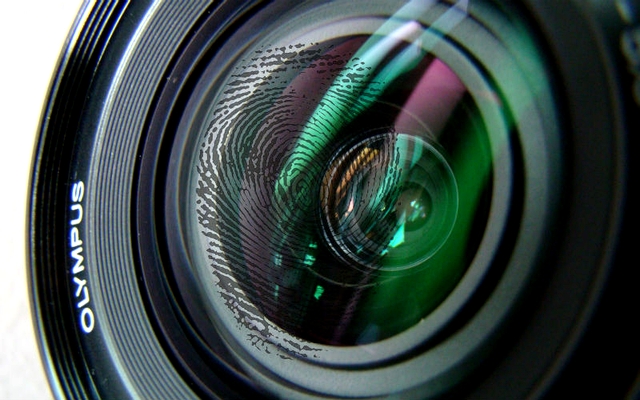
Illustration: Pat Kinsella
The Internet of Things is coming. And the tech cognoscenti aren’t sure that’s a good thing.
For years, the prospect of an online world that extends beyond
computers, phones, and tablets and into wearables, thermostats, and
other devices has generated plenty of excitement and activity. But now,
some of the brightest tech minds are expressing some doubts about the
potential impact on everything from security and privacy to human
dignity and social inequality.
That’s the conclusion of a new survey from the Pew Research Center.
For ten years, the Washington, D.C. think tank has surveyed thousands of
technology experts–like founding father Vint Cerf and Microsoft social
media scholar danah boyd–about the future of the Internet. But while
previous editions have mostly expressed optimism, this year people
started expressing more concern. “We had a lot of warnings, a lot of
people pushing back,” says Janna Anderson, co-author of the report.
The Internet of Broken Things
The 1,606 respondents said they saw many potential benefits to the
Internet of Things. New voice- and gesture-based interfaces could make
computers easier to use. Medical devices and health monitoring services
could help prevent and treat diseases. Environmental sensors could
detect pollution. Salesforce.com chief scientist JP Rangaswami said that
improved logistics and planning systems could reduce waste.
But most of the experts warned of downsides as well. Security was one
of the most immediate concerns. “Most of the devices exposed on the
internet will be vulnerable,” wrote Jerry Michalski, founder of the
think tank REX.
“They will also be prone to unintended consequences: they will do
things nobody designed for beforehand, most of which will be
undesirable.”
We’ve already seen security camera DVRs hacked to mine bitcoins as well as a worm that targets internet connected devices like home routers. As more devices come online, we can expect to see an increase in this kind of attack.
Beyond security concerns, there’s the threat of building a world that
may be too complex for our own good. If you think error messages and
applications crashes are a problem now, just wait until the web is
embedded in everything from your car to your sneakers. Like the VCR that
forever blinks 12:00, many of the technologies built into the devices
of the future may never be used properly. “We will live in a world where
many things won’t work and nobody will know how to fix them,” wrote
Howard Rheingold.
So Many Left Behind
That complexity could also leave many people behind. Developing
nations–precisely the ones that could most benefit from IoT’s
environmental benefits–will be least able to afford them, says Miguel
Alcaine, an International Telecommunication Union area representative
for Central America. In an interview, Pew’s Internet & American Life
Project director Lee Raine pointed out that the IoT could lead to a
much larger digital divide, one in which those who cannot or choose not
to participate are shut out entirely from many daily activities. What
happens when you need a particular device to pay for items at your local
convenience store?
Meanwhile, those that do partake in the IoT may find it dehumanizing,
especially in the workplace. We’ve already seen some companies explore
the possibility of monitoring their employees
through wearables. “The danger will be in loss of privacy and a
reduction of people into numbers: the dark side of the quantified self,”
wrote Andrew Chen, a computer information systems professor of at
Minnesota State University. Peter R. Jacoby, an English professor at San
Diego Mesa College, summed up this line of thought bluntly: “By 2025,
we will have long ago give up our privacy. The Internet of Things will
demand–and we will give willingly–our souls.”
The Counterargument
Not everyone thinks this loss of privacy is inevitable. Harvard
fellow David “Doc” Searls argues that we needn’t sacrifice our privacy
in order to enjoy the advantages of connected devices. There’s no reason
that all devices must connect to the internet as opposed to private
networks. And even those that are connected to the public internet could
use encryption to talk to private servers, protecting your data from
large companies.
“People’s Clouds of Things can be as personal and private as their
houses (and, when encrypted, even more so),” he wrote. “They can also be
far more social than any ‘social network’ because they won’t involve
centralized control of the kind that Facebook, Google, and Twitter
provide.”
Searls imagines a world with more fine-tuned control over not just
privacy, but the terms of service that govern the products we consume
today. We’ve already seen some progress towards such a vision with
open-source Internet of Things projects such as Spark, Tessel, Skynet and Nodered.
The question is whether these types of platforms can be used to build
truly open consumer products, and, if so, whether anyone will want to
use them.
The Hypometer
It’s also possible that the Internet of Things will fail to take off
in any meaningful way. “The Internet of Things has been in the red zone
of the hypometer for over a decade now,” Bill St. Arnaud, a
self-employed green internet consultant wrote. “Yes, there will be many
niche applications, but it will not be the next big thing, as many
pundits predict.”
An unnamed co-founder of a consultancy with practices in internet
technology and biomedical engineering agreed. “Inter-networked wearables
will remain a toy for the wealthy,” he wrote. He thinks wearables and
other connected devices will be useful for the military, hospitals,
prisons and other niche operations, but he doesn’t expect them to be
particularly life-changing.
Justin Reich, a fellow at Harvard University’s Berkman Center for
Internet & Society, hedged his bets. “I’m not sure that moving
computers from people’s pockets (smartphones) to people’s hands or face
will have the same level of impact that the smartphone has had,” he
wrote. “But things will trend in a similar direction. Everything that
you love and hate about smartphones will be more so.”




